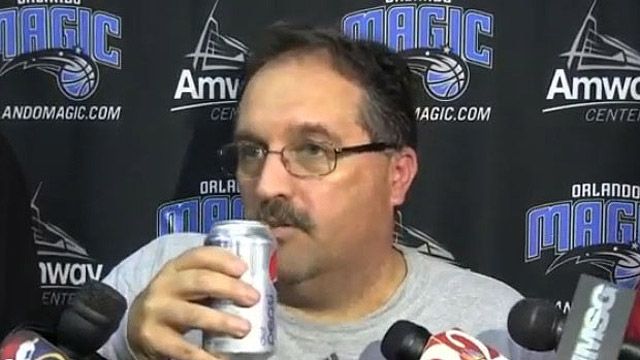1.) By making the appropriate swing passes.
2.) By making the appropriate closeouts after the opposition's swing passes.
 |
| Thibodeau and Rose can both claim to be Chicago's Most Valuable Person. |
These are the two most important components of any legitimate championship contender. Thibodeau baked principle two into Boston's defense back in 2008, and he baked it into Chicago's collective defensive brain last year. It seems he has finally gotten a chance to institute principle one into his team's DNA, and his team is reaping the benefits of this newfound lifeblood so much that they've somewhat shaken their unsustainable reliance on their old lifeblood- superstar point guard Derrick Rose.
Last year, Derrick Rose won the MVP by being the offensive system that Chicago used to win 62 games. He was my MVP last year. This season, Rose is averaging 22.8 points and a career-high eight assists per game while lowering his turnovers and upping his eFG percentage (efficiency from the field). He's arguably playing better than he did last year- when he actually plays.
After missing only one game last year, he's missed 22 this year; Chicago is 28-7 with him, 15-7 without him, so he's still valuable.
The major takeaway from this is how Chicago's offense has improved from last year despite missing their MVP- an offense-oriented superstar no less- for such a large percentage of games. And it all comes back to Thibodeau's installation of a more structured system that facilitates passing with or without an on-court facilitator.
Chicago was ranked 11th in offensive rating last year, their only team strength being offensive rebound rate (they were fourth in '11). This year, despite the absence of Rose and a dip in eFG percentage (in both the actual number as well as relative to the league for each year), the Bulls rank 4th in offensive rating. Lapping the field in offensive rebound rate is part of it- Chicago is nearly as far away from the second-ranked Utah Jazz as Utah is from the league average- but another major factor is a much lower turnover rate. The Bulls actually rank in the top 10 in turnover rate despite not having Rose on the court as much.
 |
| Joakim Noah is a very good high-post passer. |
Most importantly is that the Chicago players are moving the ball via the pass, and they're doing it without turning the ball over as much. They are 5th in the league in Assist Percentage (percent of field goals assisted) at 61.25 percent. Last year, with Rose creating for everybody, the Bulls ranked 9th at 60.06 percent. Players are moving the ball more, and the collective IQ of the team has improved. As a result, Chicago has been able to withstand the injuries to Rose enough to own the league's best record (43-14).
What does this mean for the Bulls in May and June? Last year against Miami, Chicago was beaten because they relied too heavily on Rose. However, the need for Rose's creative abilities isn't as dire now thanks to a strategic enhancement in offensive philosophy.
Thibs's version of the truest of all basketball team fundamentals- let's call it his "Windy City Systems"- will play come May.


